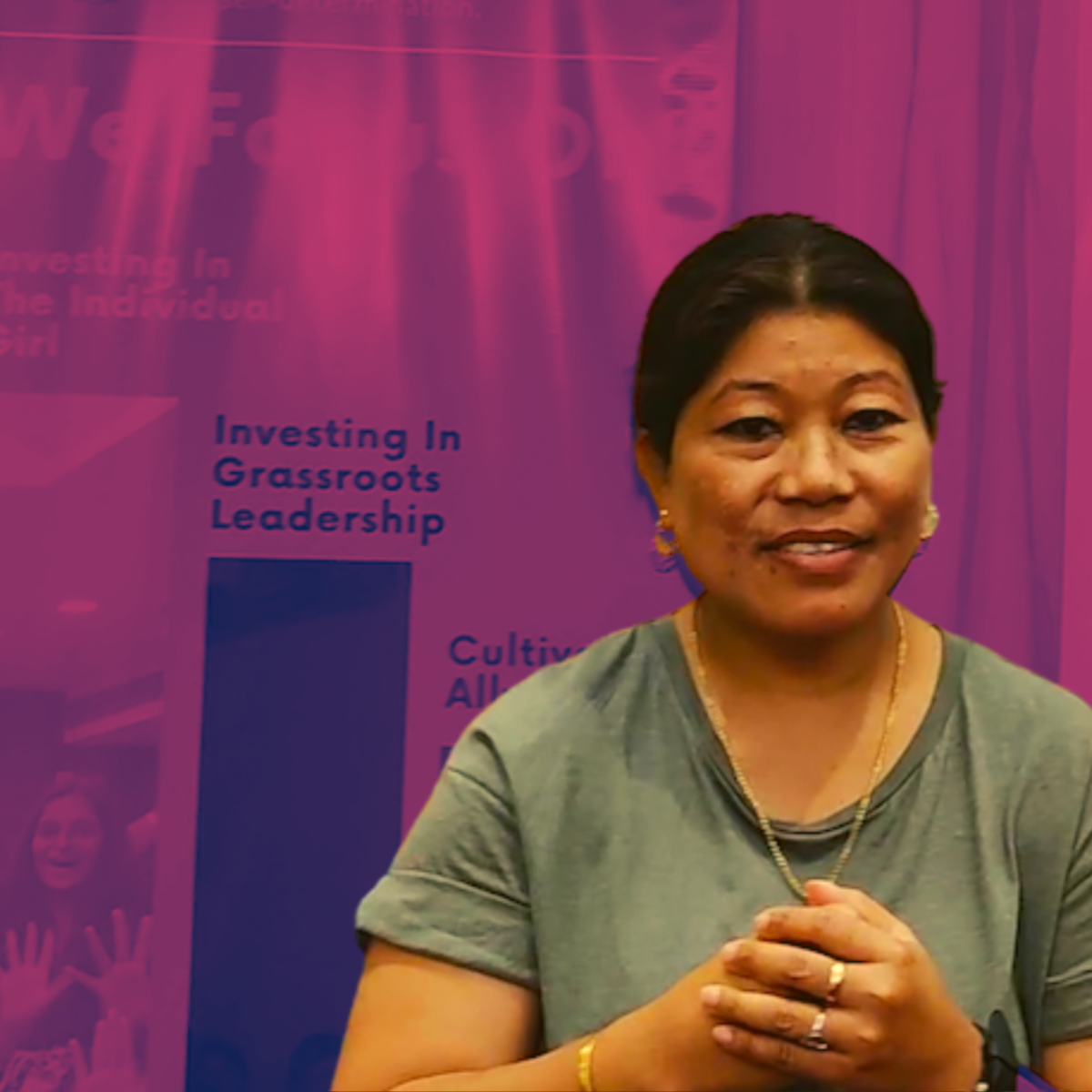
"Even after the biggest world war, there was an end, so that is something I see happening beyond this crisis." - Hechin
Stories of Collective Action: Hechin
By Urmila Reghunath, Communications Manager
September 22, 2023
Reading Time: 7 minutesAs we prepare to commemorate the International Give to Women and Girls Day, Shadhika aims to garner support for the critical gender justice work by our newest partner, Centre for Women and Girls, in Manipur, India.
Read on to learn more about CWG’s founder Hechin and CWG’s response to the ongoing conflict in Manipur.
Center for Women and Girls is a new partner in Shadhika’s Support for Success. Tell us why CWG chose to work with girls and young women in the tribal communities around Imphal.
For me, to work with women and girls, it’s very personal. Every time I see the smallest changes in behavior or even in the kinds of words they use and how they learn about their rights, I feel like I am also growing. I have always been a part of growth, as a woman shaped by my childhood experiences growing up in a rural village where access to education was limited during my childhood.
There was no school in the village [where I grew up], so I had to travel and stay away from my parents since I was in [Grade 3]. So, I never had the opportunity to talk about social issues, about your rights, or something like menstrual hygiene. These are things that are very personal but at the same time, important. But I never had the chance to talk about these things even with my peer group because there was no awareness about this.
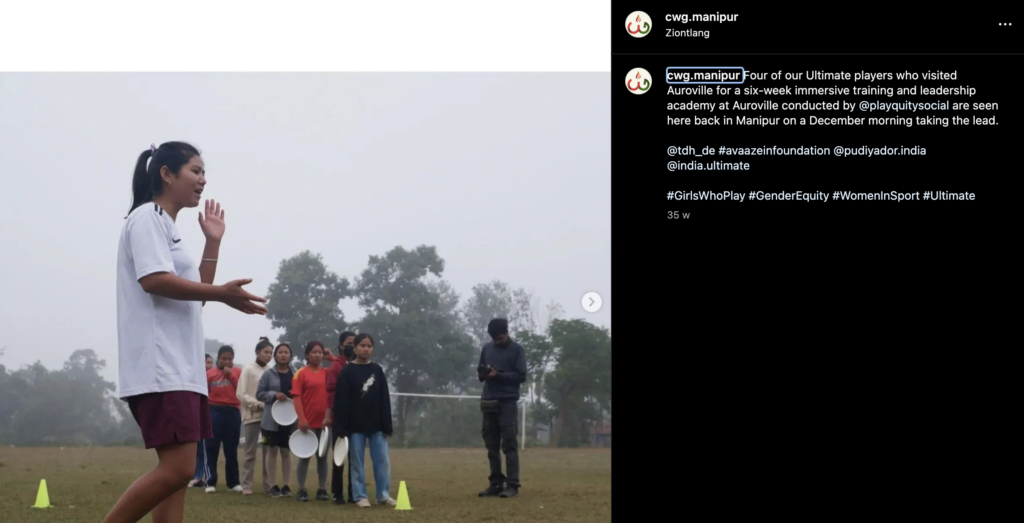
So, with this opportunity to work with girls and women, I feel like it’s my own issue (to work on) and I’m very happy that we’re able to create this small space at the Center for Women and Girls (CWG) where we invite and come together with girls to discuss their own interests and their challenges as girls in the community.
With women, for example, the mothers, it is important to have discussions with them so that they can be the change makers and they can start talking about women’s rights. So instead of children talking to the mother, if the mother can start the conversation, it becomes easier for the girls.
I feel privileged and happy that I could choose this profession, especially to work with women and children in my community.
We realize that there is armed unrest in Manipur. Would you feel comfortable sharing what CWG’s response has been to this situation?
Yeah, it is very unfortunate that we in Manipur are going through these really really difficult times. People have different opinions and people express their anger in many different ways. But this time, in the history of Manipur, one of the biggest instances of violence is happening (sic).
But, to me, […] how women, girls, children, and elderly people are affected is really a big concern, because the effect of this crisis is going to last long. This is because of the loss of life and property, the loss of trust- which is the most important thing- it’s going to take a long time to rebuild. Many people say this can’t be rebuilt anymore because the loss of trust is too […] deep. But even after the biggest world war, there was an end, so that is something I see happening beyond this crisis.
During this crisis, CWG has also been affected. We are not able to continue our regular daily activities because our office is in the border area [called] the buffer zone. So our daily business has not been happening. But we also see that as development workers and also as peace practitioners, we can’t be a victim. We need to somehow come out from victimhood and do something. Otherwise, if everyone becomes a victim, who’s going to help? So that is where we take the challenge and we try to do something [however small it may seem].
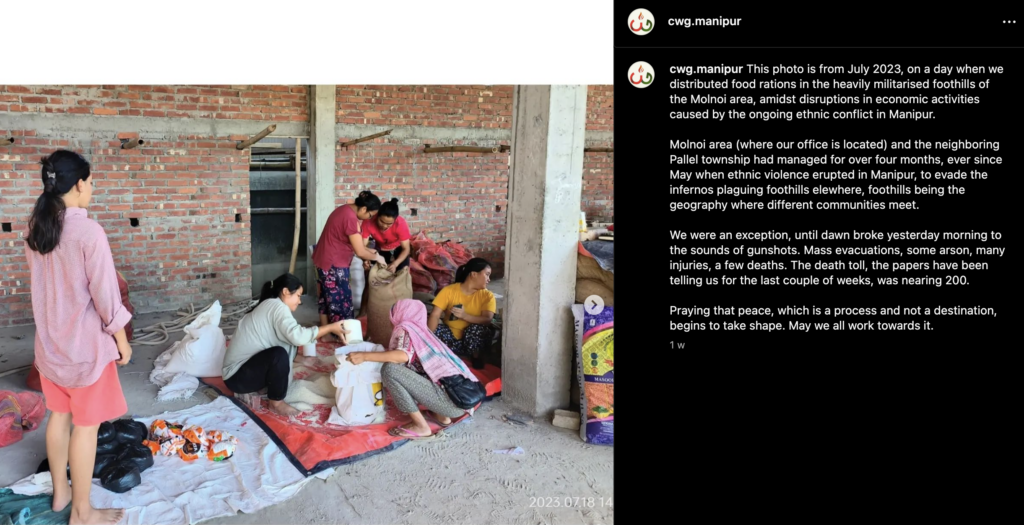
Fortunately, there were a few donors who supported us and gave us some funds, so we were able to provide some food items for the internally displaced families, many of them could not even save their clothes. So clothes, blankets, and medical aid were provided. We also distributed blankets and other clothes, and we also conducted health camps. There are not only CWG’s efforts but also many other stakeholders including the government, especially the health department. It’s the collective effort of many stakeholders.
The disruption has been so bad that just a small dry ration distribution isn’t enough because once people have to re-settle and start a new life, how long can you live in relief camps? There’s a need that’s going to come in terms of re-building homes and re-settlement because many people are not in a position to go back to their own village or to their previous home because [there is too much fear]. So that’s going to be a bigger need in the future.
We are really worried about [the monsoon] because there’s going to be a lot of difficulties this time, and lots of diseases. And, you don’t get good [substantial and healthy] food in the camps, and you are already vulnerable to different diseases like diarrhea. Numerous children and a significant number of women, including pregnant women, are present [and have] immediate and urgent needs. At the same time, the long-term needs are going to be very high and I think it’s going to be a big financial involvement (sic).
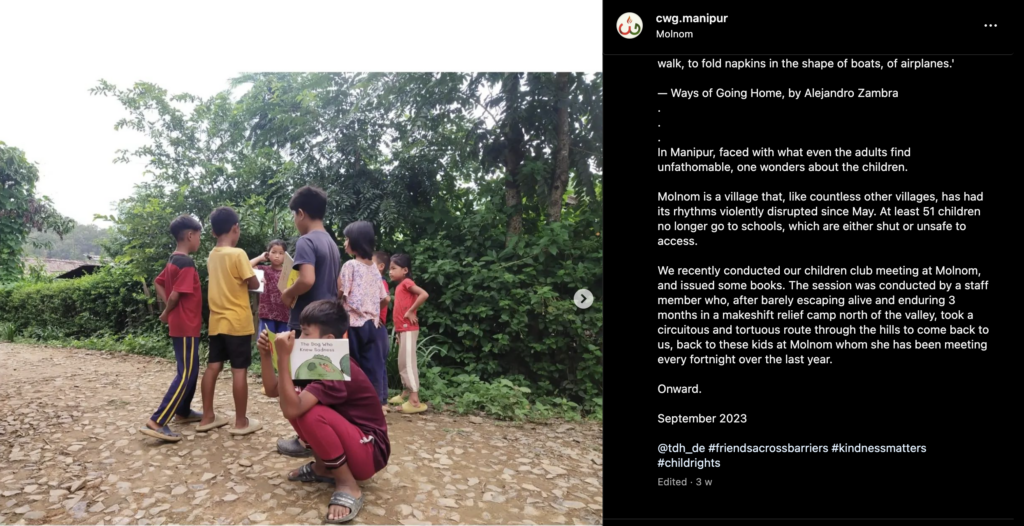
A lot of our children and youth could not go to schools and colleges so we have also not been able to hold regular meetings or interact with the youth and children. But still, we’re trying to see if there are some villages where these [spaces to hold meetings] are intact so we can talk about overcoming fear by sharing and talking among friends or through storytelling sessions and other role plays.
These are some ways that we are trying to continue engagement with children and youth in our project villages, but not in the way we used to do. But we are still trying to make it happen and also we are in touch with our donors, like Shadhika. We keep sharing and get many solidarity phone calls, emails, and texts. All of this is giving us hope to overcome these difficulties.
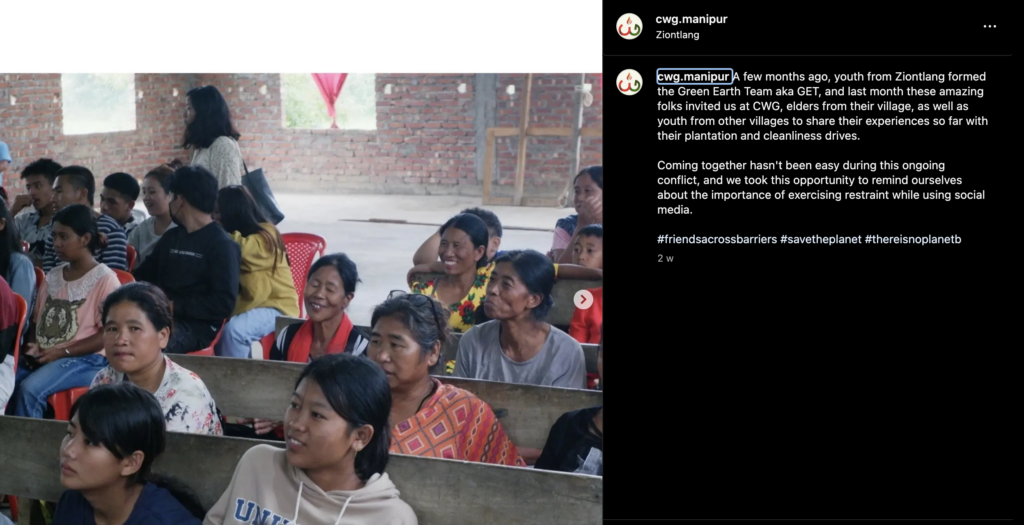
Join us in this movement for gender justice, alongside our partners working with the most underserved communities in India. You can invest in the power of the individual girl, and support grassroots leadership in India today!
Read more